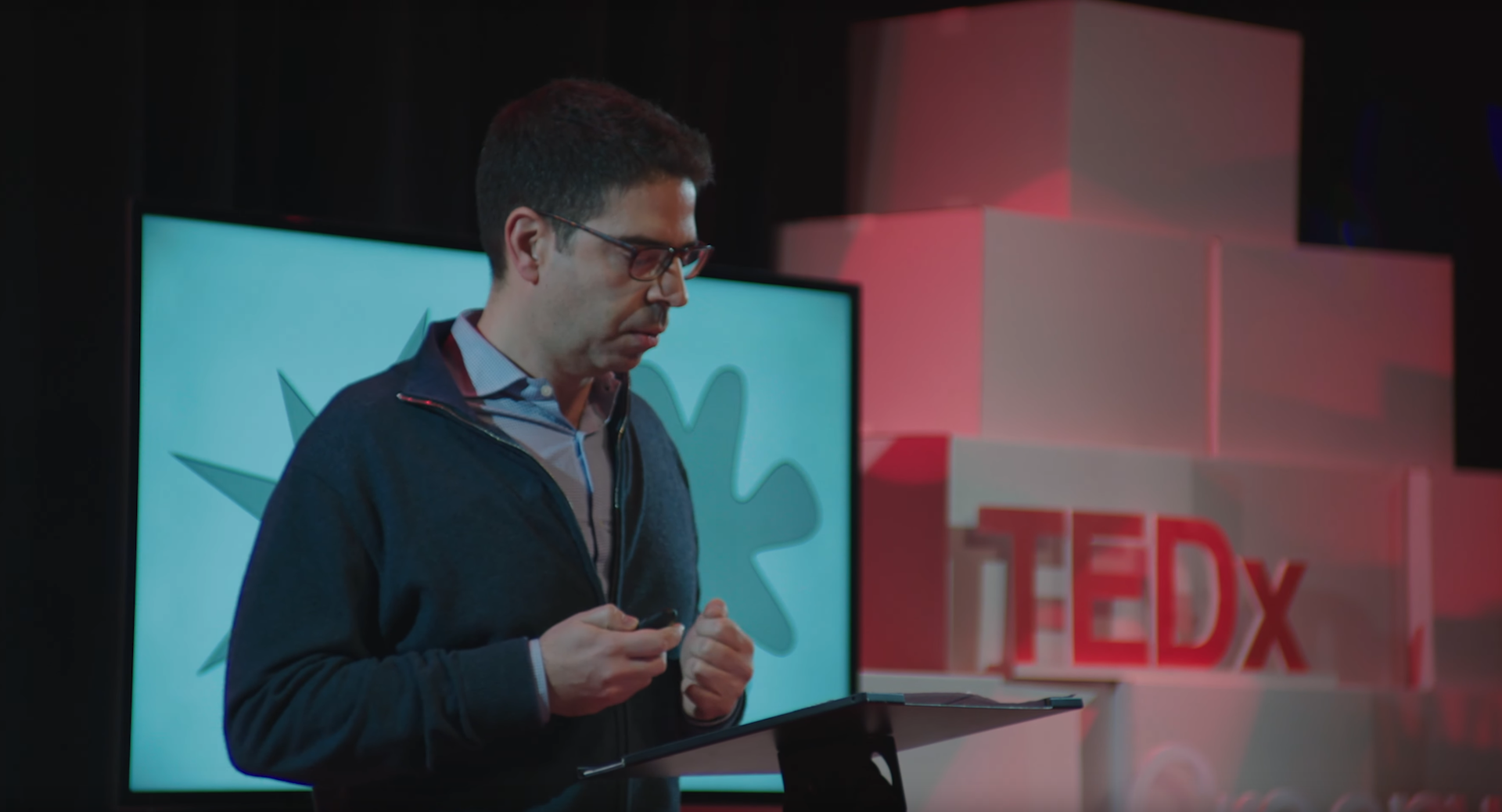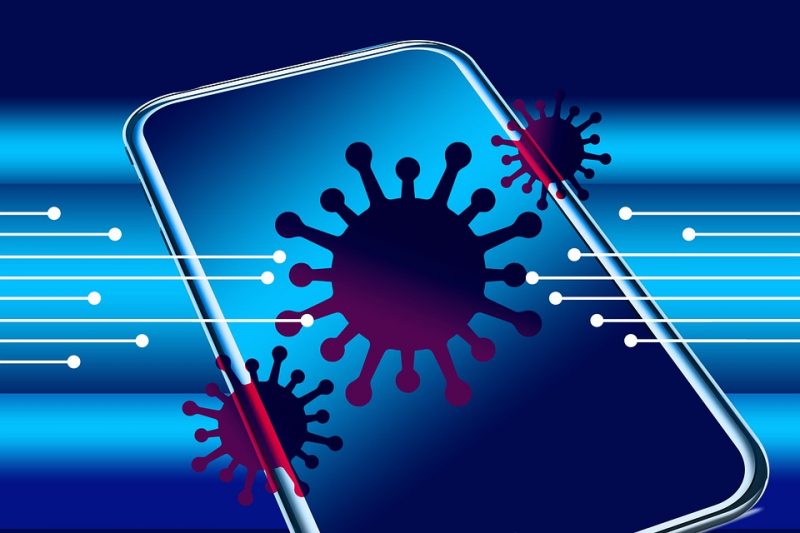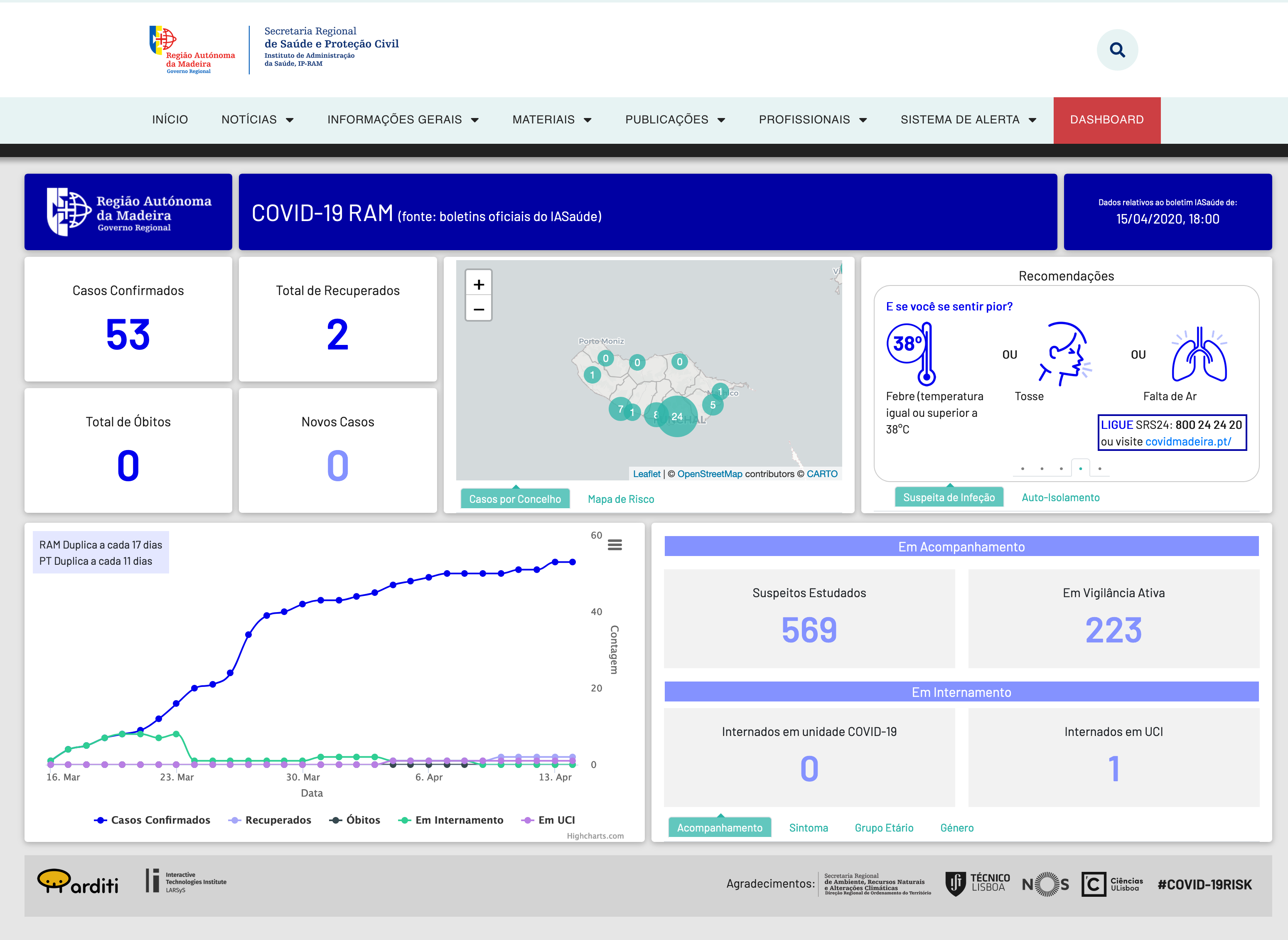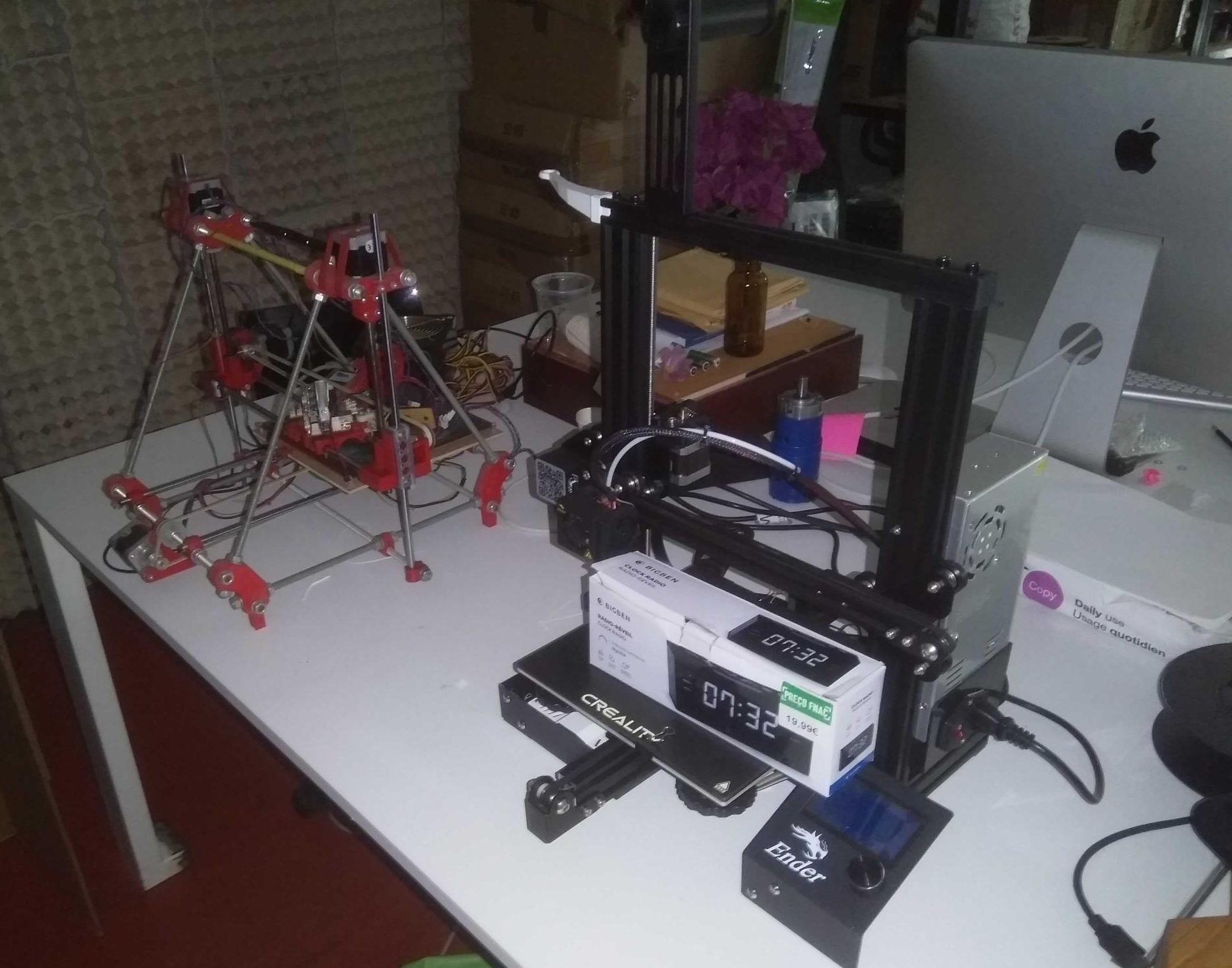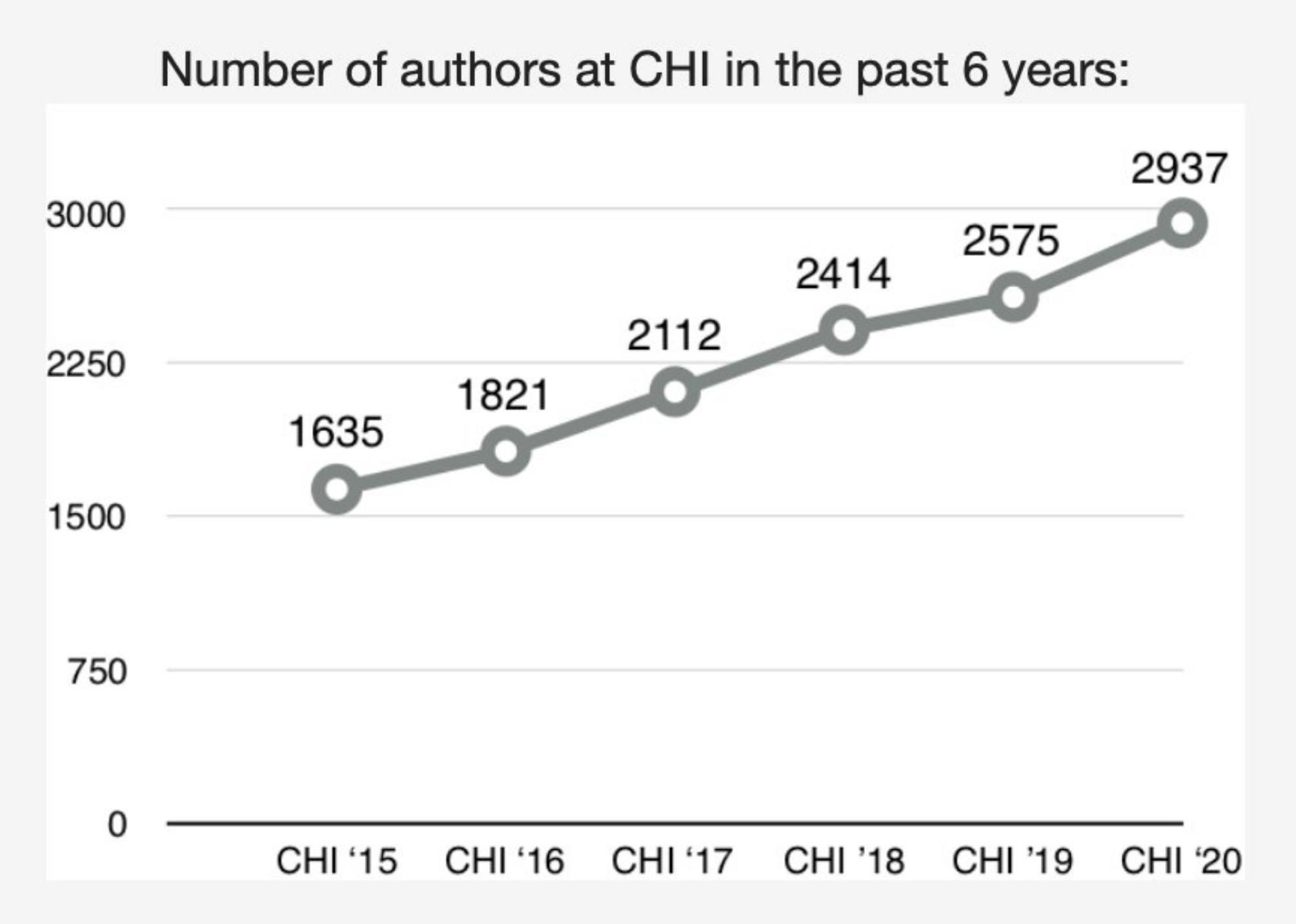The European Researchers’ Night is being celebrated on Friday, November 27, this year. The University of Madeira and ARDITI are organizing this event fully online, for the first time, due to COVID-19.
The new format includes online videos, conferences, activities, virtual visits, and more, of the different research units available here. Some of the involved entities are schools, the University of Madeira, the Oceanic Observatory of Madeira, the Natural History Museum of Funchal, Startup Madeira, among others. The initiative will have live streaming of demos and talks, also available on the same website, from 9:30 am to 19:30 pm.
Several ITI/LARSyS researchers have sent videos for the event. Check them out here.
Program (in Portuguese)
9h30 – 10h00 Sessão de Abertura
10h00 – 10h20 Conferência I: A potencialidade de macroalgas marinhas como fonte de compostos bioactivos – Nuno Nunes (ISOPlexis – Centro em Agricultura Sustentável e Tecnologia Alimentar – UMa)
10h20 – 10h35 Atividade de Divulgação 1 : ROVs e outras tecnologias marinhas – Carlos Lucas e João Belo (Observatório Oceânico da Madeira – ARDITI)
10h35 – 10h55 Conferência II: Criação de uma praia artificial e respetivas infraestruturas necessárias à sua boa execução. Aplicação ao Município de Machico – Sérgio Lousada (Departamento Engenharia Civil e Geologia – UMa)
10h55 – 11h10 Atividade de Divulgação 2: Lixo marinho – Investigação e Sensibilização – Sara Bettencourt e Soledad Álvarez (MARE – Centro de Ciências do Mar e do Ambiente – ARDITI)
11h10 – 11h30 Conferência III: O papel dos morcegos como controladores de pragas agrícolas em Madagáscar e na Madeira – Ricardo Rocha (ARDITI)
11h30 – 11h45 Atividade de Divulgação 3: Experiências para os mais novos – Dayana Aguiar e João Leça (ISOPlexis – Centro em Agricultura Sustentável e Tecnologia Alimentar – UMa)
11h45 – 12h05 Conferência IV: Startup Madeira > Da ideia ao negócio… – Micaela Vieira (SartUP Madeira )
12h05 – 12h20 Atividade de Divulgação 4: Vamos construir um parque eólico; Cenário de Aprendizagem das áreas STEAM – Elsa Fernandes, Cristina Lopes, Sónia Abreu, Sónia Martins (Departamento de Matemática – UMa)
12h20 – 12h40 Conferência V: Mariscos da Madeira – Manuel Biscoito (Estação de Biologia Marinha do Funchal – Câmara Municipal do Funchal )
12h40 – 12h55 Atividade de Divulgação 5: Experiências no âmbito da Eletrónica e Telecomunicações – Luís Gomes (Departamento de Engenharia Eletrónica e Telecomunicações – UMa)
13h00 – 14h30 Exibição de vídeos sobre a Investigação e Inovação na Madeira
14h30 – 14h50 Conferência VI: AGEO – Plataforma Atlântica para a Gestão do Risco Geológico – Fátima Gouveia (Departamento Engenharia Civil e Geologia – UMa)
14h50 – 15h05 Atividade de Divulgação 6: Demonstração de impressão 3D, demonstração de projeto em desenvolvimento de robô futebolista – Jorge Monteiro (Escola Secundária Francisco Franco)
15h05 – 15h25 Conferência VII: Efeitos da poluição luminosa sobre as aves marinhas – Cátia Gouveia (Sociedade Portuguesa para o Estudo das Aves – SPEA)
15h25 – 15h40 Atividade de Divulgação 7: O Papel da AGROSENSELAB (Câmara de Provadores) na valorização dos produtos Agroalimentares da RAM – Zita Vasconcelos (AgroSenseLab)
15h40 – 16h00 Conferência VIII: Na linha da Frente: Investigar para cuidar – Isabel Fragoeiro e João Pedro Silva (Escola Superior de Saúde – UMa)
16h00 – 16h15 Atividade de Divulgação 8: Projetos de Mecatrónica – Paulo Gomes e Sandro Silva (Curso EFA – Técnico de Mecatrónica. Escola Básica e Secundária de Santa Cruz)
16h15 – 16h35 Conferência IX: Os nematodes na agricultura – Fátima Rocha (Laboratório de Qualidade Agrícola)
16h35 – 16h50 Atividade de Divulgação 9: ANÁLISES AGRÍCOLAS – As Análises Agrícolas no apoio a agricultura da RAM – Miguel Franquinho e Duarte Sardinha (Laboratório de Qualidade Agrícola)
16h50 – 17h10 Conferência X: Lixo Espacial – Laurindo Sobrinho (Grupo de Astronomia da Universidade da Madeira – GAUMa)
17h10 – 17h25 Atividade de Divulgação 10: Equipamentos didático-científicos na área das estruturas de Engenharia Civil – José Santos (Departamento Engenharia Civil e Geologia – UMa)
17h25 – 17h45 Conferência XI: Investigação no Centro de Maricultura da Calheta – Ricardo José (Centro de Maricultura da Calheta – DSIMar)
17h45 – 18h00 Atividade de Divulgação 11: INOVAGRO – No seu papel para desenvolver ações planificadas de criação de inovação na produção agrícola e agroalimentar da RAM – Natália Silva (Inovagro – Divisão de Inovação Agroalimentar)
18h00 – 18h20 Conferência XII : Estudo sobre o Impacto emocional do confinamento nos estudantes de enfermagem portugueses e espanhóis – Tânia Lourenço (Escola Superior de Enfermagem São José de Cluny)
18h20 – 18h35 Atividade de Divulgação 12: Hortas da Varanda – Gonçalo Antunes (ISOPlexis – Centro em Agricultura Sustentável e Tecnologia Alimentar – UMa)
18h35 – 18h55 Conferência XIII: O Museu de História Natural do Funchal e o conhecimento científico – Ricardo Araújo (Museu de História Natural do Funchal – Câmara Municipal do Funchal)
18h55 – 19h10 Atividade de Divulgação 13: O coração da Internet – Filipe Freitas (Escola Superior de Tecnologia e Gestão – UMa)
19h10 – 19h30 Conferência XIV: Análise Teórico-prática do Risco de Cheias no Arquipélago da Madeira – O caso de estudo dos concelhos do Funchal, Machico, Ribeira Brava e São Vicente – Leonardo Gonçalves (Departamento Engenharia Civil e Geologia – UMa)
19h30 Encerramento
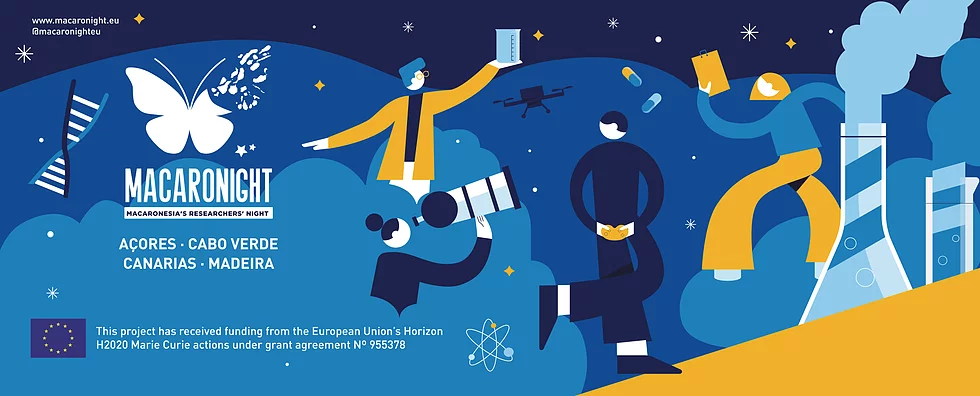
 gree in Software Engineering from IST and has specialized in distributed systems and networking protocols. Pedro is the author and contributor of some famous open-source projects and packages and has also been the writer of 10 books around the subject of Node.js and systems architecture.
gree in Software Engineering from IST and has specialized in distributed systems and networking protocols. Pedro is the author and contributor of some famous open-source projects and packages and has also been the writer of 10 books around the subject of Node.js and systems architecture.